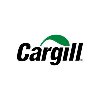Filter interviews by
Emami Agrotech Ammonia Refrigeration Plant Operator Interview Questions and Answers
Emami Agrotech Ammonia Refrigeration Plant Operator Interview Experiences
1 interview found
I appeared for an interview in Jul 2024.
(2 Questions)
- Q1. What is the boiling point of ammonia?
- Ans.
The boiling point of ammonia is -33.34 degrees Celsius (-28.01 degrees Fahrenheit).
The boiling point of ammonia is -33.34 degrees Celsius or -28.01 degrees Fahrenheit.
Ammonia boils at a relatively low temperature compared to many other substances.
At its boiling point, ammonia changes from a liquid to a gas.
- Q2. What is the principle of operation of an ammonia cooling tower?
- Ans.
An ammonia cooling tower operates on the principle of evaporative cooling to remove heat from ammonia refrigerant.
Ammonia refrigerant is circulated through the tower where it absorbs heat from the surroundings.
Water is sprayed over the ammonia coils, causing some of it to evaporate and absorb heat from the ammonia.
The heat absorbed by the evaporating water is released into the atmosphere, cooling the ammonia and allowi...
Interview Preparation Tips
Interview questions from similar companies

Sales Executive Interview Questions & Answers
Mondelez Internationalposted on 17 Feb 2021
Interview Questionnaire
1 Question
- Q1. Related to YTD Growth , Related to Portfolio , Related to Daily work

Sales Executive Interview Questions & Answers
Mother Dairy Fruit & Vegetableposted on 5 Apr 2021
I applied via Recruitment Consultant and was interviewed before Apr 2020. There was 1 interview round.
Interview Questionnaire
1 Question
- Q1. Tell me about yourself
Interview Preparation Tips

I applied via Referral and was interviewed in May 2021. There was 1 interview round.
Interview Questionnaire
1 Question
- Q1. Basic questions
Interview Preparation Tips

Interview Questionnaire
1 Question
- Q1. Regarding market working and bussiness growth

Boiler Operator Interview Questions & Answers
Triveni Engineering & Industriesposted on 10 Apr 2024
I applied via Approached by Company and was interviewed in Apr 2024. There was 1 interview round.
(11 Questions)
- Q1. What is boiler ?
- Ans.
A boiler is a closed vessel in which water or other fluid is heated.
Boilers are used to generate steam or hot water for heating, processing, or power generation
They can be fueled by natural gas, oil, coal, or electricity
Boilers have pressure and temperature controls to ensure safe operation
- Q2. DM water in silica ?
- Ans.
Silica in DM water can cause scaling and corrosion in boiler systems.
Silica in DM water can lead to scaling on boiler tubes and heat exchangers.
High levels of silica can also cause corrosion in boiler systems.
Regular monitoring and treatment of DM water is essential to prevent silica buildup.
Examples of treatment methods include ion exchange resins and reverse osmosis systems.
- Q3. Dearetor in chemical dosing %?
- Ans.
Dearetor in chemical dosing % refers to the percentage of chemical dosing in the deaerator system.
Dearetor in chemical dosing % is the amount of chemical added to the deaerator system to prevent corrosion and scale buildup.
The percentage of chemical dosing can vary depending on the specific requirements of the system and the type of chemicals being used.
For example, a typical range for chemical dosing in a deaerator sy...
- Q4. Water wall tube material?
- Ans.
Water wall tubes are typically made of carbon steel, stainless steel, or alloy steel to withstand high temperatures and pressure.
Water wall tubes are commonly made of carbon steel due to its cost-effectiveness and durability.
Stainless steel water wall tubes are used in applications where corrosion resistance is important.
Alloy steel water wall tubes are preferred for high-pressure and high-temperature environments.
Comm...
- Q5. Super heater tube material composition?
- Ans.
Super heater tubes are typically made of alloy steel to withstand high temperatures and pressures.
Super heater tubes are commonly made of materials like T11, T22, T91, etc.
Alloy steel is preferred for its high temperature and pressure resistance.
The material composition may vary based on the specific requirements of the boiler system.
- Q6. Tube failure reason?
- Ans.
Tube failure can occur due to various reasons such as corrosion, erosion, overheating, and mechanical stress.
Corrosion from water or chemical reactions can weaken the tube material.
Erosion from high velocity fluid flow can wear down the tube walls.
Overheating can cause the tube material to weaken and eventually fail.
Mechanical stress from pressure fluctuations or vibrations can lead to cracks and failures.
Examples: Cor...
- Q7. Super heater steam speed?
- Ans.
Super heater steam speed is the velocity at which steam flows through the super heater tubes.
Super heater steam speed is typically measured in meters per second or feet per minute.
Higher steam speeds can increase heat transfer efficiency in the super heater.
Proper steam speed is crucial to prevent overheating or underheating of the super heater tubes.
- Q8. Steam drum in total spaire part?
- Ans.
Steam drum spare parts include level gauges, safety valves, blowdown valves, and pressure switches.
Level gauges
Safety valves
Blowdown valves
Pressure switches
- Q9. Coal in total moisture?
- Ans.
Total moisture in coal refers to the moisture content present in coal including both surface moisture and inherent moisture.
Total moisture in coal is the sum of surface moisture and inherent moisture.
Surface moisture is the moisture present on the surface of coal particles, while inherent moisture is the moisture contained within the coal itself.
Total moisture affects the calorific value and combustion efficiency of co...
- Q10. Slop in total oxygen %?
- Ans.
Slop in total oxygen % refers to the amount of oxygen present in the slop being used in the boiler operation.
Slop in total oxygen % is an important parameter to monitor in boiler operation as it affects combustion efficiency.
High levels of oxygen in slop can indicate incomplete combustion, leading to energy loss and increased emissions.
Regular monitoring and adjustment of oxygen levels in slop can help optimize boiler
- Q11. Baggage density?

I applied via Referral and was interviewed in Nov 2021. There were 2 interview rounds.

(1 Question)
- Q1. Market work experience
Interview Preparation Tips
- Dairy
- Beverage

Sales Executive Interview Questions & Answers
Mother Dairy Fruit & Vegetableposted on 12 Sep 2023
I applied via Referral and was interviewed before Sep 2022. There were 3 interview rounds.

(3 Questions)
- Q1. Know about ROI .How to calculate ROI of Distributor?
- Ans.
ROI is a financial metric used to evaluate the efficiency of an investment. It is calculated by dividing the net profit by the cost of the investment.
Calculate the net profit by subtracting the total costs from the total revenue generated by the distributor.
Divide the net profit by the total cost of the investment.
Multiply the result by 100 to get the ROI percentage.
For example, if a distributor generates $100,000 in r...
- Q2. Scheme calculation
- Q3. Tell me about your self.
(1 Question)
- Q1. Previous work experience
Interview Preparation Tips

Sales Executive Interview Questions & Answers
Mother Dairy Fruit & Vegetableposted on 11 Mar 2024
I applied via Naukri.com and was interviewed before Mar 2023. There was 1 interview round.
(3 Questions)
- Q1. Previous company work and question about the experiance
- Q2. Knowledge of excel and PowerPoint
- Q3. What salary you get in previous company

Sales Executive Interview Questions & Answers
Mother Dairy Fruit & Vegetableposted on 8 May 2023
I applied via LinkedIn and was interviewed before May 2022. There were 2 interview rounds.

(2 Questions)
- Q1. What about,working profile ,last company profile
- Q2. There is many question for last company ,margin of product ..
Interview Preparation Tips
Emami Agrotech Interview FAQs
Tell us how to improve this page.
Emami Agrotech Interviews By Designations
- Emami Agrotech Area Sales Executive Interview Questions
- Emami Agrotech Executive Packaging Interview Questions
- Emami Agrotech Sales Executive Interview Questions
- Emami Agrotech Project Associate Interview Questions
- Emami Agrotech Security Executive Interview Questions
- Emami Agrotech Instrument Engineer Interview Questions
- Emami Agrotech Marketing Executive Interview Questions
- Emami Agrotech Executive Engineer Interview Questions
- Show more
Interview Questions for Popular Designations
- Ammonia Plant Operator Interview Questions
- Associate Developer 2 Interview Questions
- Fashion Designer Interview Questions
- Assistant Branch Sales Manager Interview Questions
- Senior Manager Planning Interview Questions
- Accounts Administrator Interview Questions
- Telecommunication Technician Interview Questions
- Quality Assurance and Quality Control Analyst Interview Questions
- Show more
Emami Agrotech Ammonia Refrigeration Plant Operator Interview Process
based on 1 interview
Interview experience
Interview Questions from Similar Companies
Emami Agrotech Ammonia Refrigeration Plant Operator Reviews and Ratings
based on 1 review
Rating in categories
|
Area Sales Executive
154
salaries
| ₹3.4 L/yr - ₹8.6 L/yr |
|
Sales Executive
76
salaries
| ₹3 L/yr - ₹7.5 L/yr |
|
Area Sales Manager
57
salaries
| ₹8 L/yr - ₹20.5 L/yr |
|
Sales Officer
51
salaries
| ₹3 L/yr - ₹6 L/yr |
|
Senior Executive
48
salaries
| ₹4.1 L/yr - ₹7.6 L/yr |

Cargill

Mother Dairy Fruit & Vegetable

Amul India

Heritage Foods
- Home >
- Interviews >
- Emami Agrotech Interview Questions >
- Emami Agrotech Ammonia Refrigeration Plant Operator Interview Questions

















